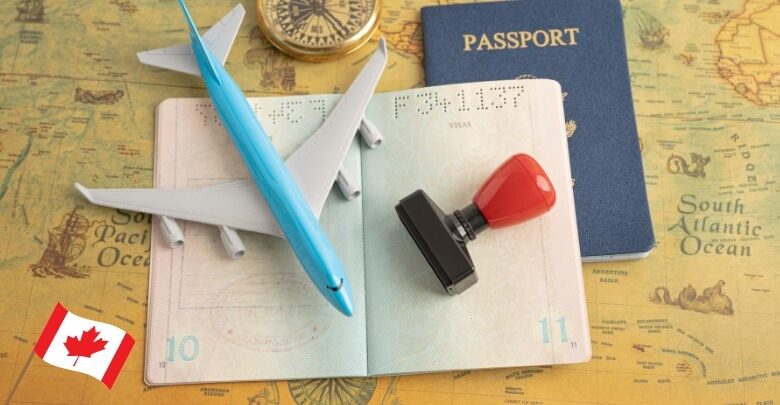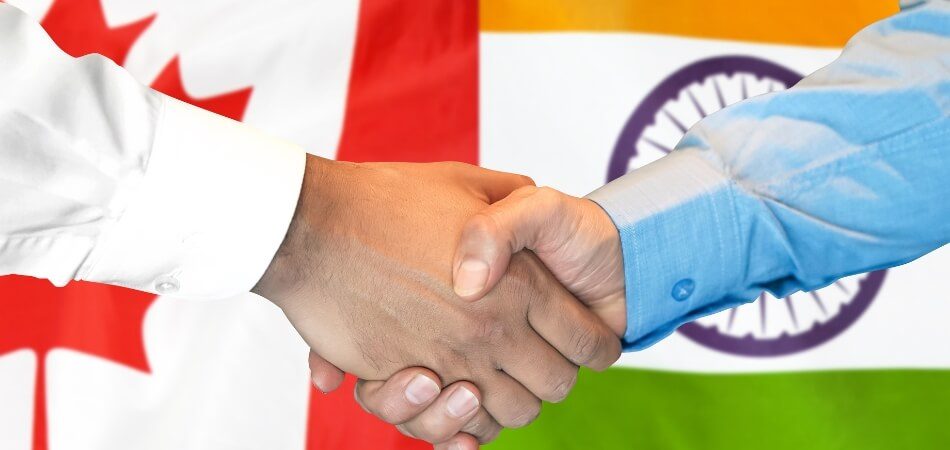Visas are tricky, especially when it comes to international travel. Over the years, many aspiring travelers from India have considered Canada a preferred destination, but how often are these hopefuls granted their wish? The question on many minds is, what is the success rate of Canada visitor visas from India in?
Historically, the trajectory has been a concerning one. According to the IRCC, there was a notable dip in approval rates, plummeting from 82% in 2011 to 66% by 2020. This trend signifies tightening regulations or stricter criteria, making it even more crucial to stay updated on the current odds and factors influencing these decisions.
As the world evolves, so do visa policies, and understanding these dynamics is critical to a successful application.
How Does Canadian Visitor Visa Work?
With its picturesque landscapes and multicultural cities, Canada has always been a sought-after destination. For many, obtaining a Canadian visitor visa is the first step towards experiencing this vast country firsthand.

Every year, thousands flock to apply for a Canadian visitor visa, a document allowing tourists to explore the country briefly. It’s essential for visitors from countries that do not benefit from visa exemptions or Electronic Travel Authorization (eTA). Thus, prospective travelers should be aware of the requirements and processes involved.
The visa process involves several steps, from filling out an application to attending an interview if required. Document verification ensures a traveler’s intentions align with the visit’s purpose. A positive outcome grants access to Canada’s wonders, from the Rocky Mountains to urban delights.
However, it’s worth noting that a visitor visa doesn’t guarantee entry. Upon arrival, Canadian immigration officials determine the final eligibility based on various factors. Being prepared and informed for a hassle-free travel experience is always recommended.
Who Can Apply for a Canadian Visitor Visa?
A Canadian visitor visa allows many individuals from around the world to explore the country’s vast landscapes and vibrant cities. Understanding eligibility criteria is the first step toward a successful application.
- Tourists: Those wishing to explore Canada’s attractions can apply. They’ll need to provide a precise travel itinerary and accommodation details.
- Business Visitors: Professionals visiting for short-term business activities apply here. Their purpose can’t involve entering the Canadian labor market.
- People Attending Events: Attendees of conferences, workshops, or festivals in Canada use this visa. Event details and personal invitations may be required.
- Visiting family or friends: Individuals visiting Canadian residents can apply. A letter of invitation from the host is often essential.
- Transit passengers: Travelers with layovers in Canada might need this visa. They should prove their primary destination isn’t Canada but another country.
- Students in short courses: Those enrolled in courses or training under six months qualify. The study program’s details are crucial during the application.
Required Documents for a Visa to Canada
Applying for a visa to Canada requires careful preparation and submission of specific documents. Gathering the right paperwork ensures a smoother application process.
Application Form (IMM 5257):
This form captures details about the applicant’s background. It’s essential to fill it accurately to avoid potential delays. Always double-check information before submitting.
Proof of Sufficient Funds:
Applicants must prove they can finance their stay. Bank statements or pay slips might serve as valid evidence. Ensure documents reflect steady financial health.
Travel History:
Providing a history of previous travels strengthens the application. This can be shown using stamped passport pages or visas. It establishes credibility and genuine travel intentions.
Letter of Invitation:
If visiting someone in Canada, this is crucial. The letter should detail the relationship and the trip’s purpose. It also might need the inviter’s status proof in Canada.
Photographs as per Specification:
Photos should meet specific size and clarity guidelines. Typically, two recent passport-sized photos are required. They play a vital role in identification processes.
While the visa process might seem daunting, accurate and complete documentation can simplify it significantly. Having everything in order will pave the way for a smoother visa acquisition.
What Is the Success Rate of Canada Visitor Visas from India?
There’s a common question that going around the Canadian visitors, what is the success rate of Canada visitor visas from India? Canada’s visa policies have always intrigued prospective travelers. For many Indians, understanding the success rate of visa applications is vital before planning their Canadian journey.
Historically, visa approval rates have seen fluctuations. From 2011 to 2020, the rate declined from 82% to 66%, as reported by the IRCC. This shift reflected changing policies and tightened criteria for applicants.
In recent years, the visa landscape presented a mixed scenario for Indian applicants. While exact numbers are still emerging, early indications hint at a slight rise. Factors like international relations and economic considerations likely play a significant role.
Staying updated on success rates can aid potential travelers in gauging their chances. Adjusting applications in response to trends might improve the odds. An informed approach can, therefore, make all the difference.
How Long Does It Take to Receive A Canadian Visa?
The processing time for a Canadian visa varies based on multiple factors. Each aspect can either expedite or delay the visa acquisition process.
Type of Application
Different visa categories have diverse processing timelines. For instance, student visas might take longer compared to tourist visas. Ensure you’re aware of category-specific timelines.
Employment-based visas or those requiring additional checks can delay the process. Thorough research on the visa type can provide a clearer timeframe. Tailored approaches catered to specific visas can be beneficial.
Application Volume
Peak travel seasons might witness a surge in applications. Increased volume can inevitably extend processing times. Applying during off-peak times might expedite the process.
Additionally, regional visa offices might experience varying workloads. Some regions might process applications faster due to lower volumes. Being strategic about when to apply can offer advantages.
Completeness of Application
Incomplete applications or missing documents can cause delays. Ensuring every required document is included is paramount. Regularly consulting updated checklist guidelines is a proactive approach.
Errors or inconsistencies in submitted documents can also stall the process. A thorough review and potential professional consultation can minimize such hiccups. Always prioritize accuracy and clarity in submissions.
Additional Verification
Sometimes, applications may need further verifications. Security or health checks can extend the visa processing time. Being prompt in responding to such requests aids in faster processing.
In rare cases, interviews might be required, leading to extended timelines. Being prepared for such eventualities ensures no unexpected delays. Knowledge of potentially extended checks can help in better planning.
In essence, while standard processing times provide a guideline, individual experiences may vary. Being informed and proactive can help maneuver through the complexities of the visa process.
What Are the Fees Associated with Obtaining a Canadian Visitor Visa From India?
Securing a Canadian visitor visa from India comes with its set of associated costs. Being informed about these fees ensures smooth financial planning.
Basic Application Fee
This is a standard fee every applicant must pay. It covers the cost of processing the visa application. Usually, this fee is non-refundable regardless of the application’s outcome.
Biometrics, if required, might have a separate fee. This fee is for capturing the applicant’s photograph and fingerprints. Always check updated fee structures before application.
Biometric Verification Fee
Some applicants need biometric verification for their visas. This involves capturing fingerprints and a photo for identification. There’s a designated fee for this process.
It’s important to remember that this fee is separate from the basic application fee. Moreover, specific centers might have their charges. Ensure thorough research to avoid hidden costs.
Medical Examination Fee
Certain individuals might require a medical exam. The fee for this is determined by the clinic or doctor. It’s usually not covered by the standard application fee.
Factors like the type of tests and the clinic’s location can influence the cost. Being prepared for this expense aids in better financial planning. Choose clinics from the approved list for a hassle-free experience.
Third-Party Assistance Fee
If using an immigration consultant or lawyer, there’ll be additional charges. Their expertise might expedite and simplify the process. However, it’s important to budget for their services.
It’s advisable to confirm their charges upfront. Transparency ensures there are no surprise costs later on. Opting for registered and credible agents is also crucial.
Last Views
The ins and outs of international travel and visa approvals can feel like going into uncharted territory. Over the last decade, visa approval rates have painted a variable picture for potential travelers. Central to this is the question, “What is the success rate of Canada visitor visas from India in?” Preliminary data indicates a slight uptick in the approval rate, hinting at a more favorable landscape for Indian applicants.
Such changes might be attributed to evolving international relations, streamlined visa processes, or even broader global events. As the dynamics shift, it remains paramount for applicants to stay updated, adapt their strategies, and optimize their chances for a successful visa journey to Canada.






